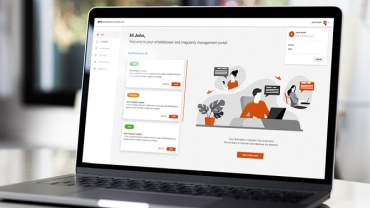
Prevention of corruption and related offenses
Your problems
- You want to implement the Decree-Law n.º 109-E/2021, from 9 December (“DL”) which establishes the General Regime of Corruption Prevention (“RGPC”), but you do not know what to do or you do not have resources to fulfil the requirements and constant measures of this DL.
- You intend to obtain the certification in the international standard ISO 37001 (Anti-bribery management systems) and/or ISO 37002 (Whistleblowing management systems), but you are not sure that your organization is prepared to obtain it.
- You want to ensure that the processes and procedures in your organization are adequate to identify situations of fraud, bribey and/or corruption.
How we can help
Along the last years our team has accumulated a wide experience in supporting clients in matters related to prevention of bribery and corruption.
We try that our intervention goes beyond the strict fulfilment of guidelines and legal obligations, including a constant share of experiences and good practices that assure an effective implementation of measures of preventing corruption.

We provide support in three big areas:
- Implementation of the RGPC
- Support in obtaining ISO 37001 and ISO 37002
- Performing audits to the internal control system (anti-corruption)
Implementation of the RGPC
- Elaboration / revision of a Plan of Risk Prevention and Related Offenses ("PPR"), including the elaboration /revision of a risk matrix of corruption and related offenses that will be attached to PPR;
- Preparation of an evaluation framework of the regulatory compliance program of the DL;
- Conducting periodic assessments (interim and annual) to the PPR;
- Elaboration / revision of codes of ethics and conduct;
- Implementation of whistleblowing channels and related matters – see our support in detail here;
- Training and communication;
- Implementation and performing third-party integrity due diligence procedures – see support in higher detail here;
- Strengthening of the internal control system with anti-corruption measures and controls;
- Elaboration of instruments for preventing conflicts of interests.
Support in obtaining ISO 37001 and ISO 37002
- Identification of differences / gaps among the procedures, controls and management system in effect in the organization against the guidelines outlined in ISO 37001 and ISO 37002;
- Identification of measures of improvement to adopt by the organization, due to the existing differences/gaps against ISO 37001 and ISO 37002;
- Elaboration of policies and manuals of procedures;
- Follow-up to the implementation of policies, processes and procedures adopted by the entity during an initial period;
- Making an audit, prior to the process of certification, that allows the organization to identify measures that were not adequately implemented.
Performing audits to the internal control system (anti-corruption)
- Preparation of tests and procedures considering the context, activity and degree of maturity of the organization;
- Perform walkthroughs to the implemented procedures and processes;
- Perform substantial tests of effectiveness, based on the tests defined;
- Identification of gaps in the implemented controls and their level of criticality considering the possible existence of legal default;
- Identification of opportunities of improvement;
- Definition of a roadmap for the implementation of opportunities of improvement.
Contact us






